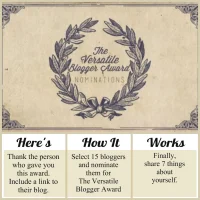Last night Dad and I attended a talk about a women’s collective farm in the north eastern part of South Africa. It’s hard to know where to start as the talk touched on so many vital issues facing agriculture today. The speaker, Dr. Elizabeth Vibert, was excellent – her talk both inspiring and horrifying.
Dr. Elizabeth Vibert, University of Victoria

Dr. Elizabeth Vibert, University of Victoria
In the aftermath of the apartheid and drought, a group of women in Joppie Village started a small farm so they could grow vegetables for their families and community. 20 years later the farm is a vibrant hub in the community serving many roles beyond simply growing vegetables. It was inspiring to hear how these women have managed to get the farm off the ground, how it sustains them today, and fuels their hopes for the future.
Issues like the fact they must use hybrid seed (and, therefore, are beholden to the seed companies each year), have very little capital to invest in infrastructure, endure long periods of heat and little rainfall followed by short periods of deluge, and the ongoing struggles they face to protect the equipment they do own (pumps to provide essential irrigation to keep crops alive during those dry periods) against theft make my farming challenges insignificant hiccups. Despite the obstacles, through their perseverance they have created an amazing hub that sustains many people in many ways.
I found myself wondering if we shouldn’t be looking more seriously at other land-ownership models here on the peninsula that would make it easier for young farmers to have access to farmland (the Women’s Farm is owned collectively by the community) and at the same time move us along the road toward securing our own local food supply. Not so very long ago, Vancouver Island produced 80+ percent of our food. Today, that figure has plummeted to somewhere between 3% and 8% (depending who you ask). If we do not provide markets, infrastructure, and access to land for our farmers, AND we proceed with making changes to the ALR as is being discussed by our dear government, then why would we expect to see any farmland left at all? As a farmer said at a recent Peninsula Agricultural Commission Meeting, if we were to make farming a viable profession, there would be no need to protect farmland because young farmers would be lining up to get into the profession and they would be financially able to do so because farming would be a job that would pay a living wage.
There are so many cans of worms in that last paragraph I would be blogging until Christmas if I started opening them all. My point is, really, whether we are in South Africa or south Asia, Australia or Hawaii, the Fraser Valley or right here on our island, we ALL need to pay attention. We need to worry about seed saving, about who owns the genetic rights to living things. We need to think about smart ways to use infill development, to preserve the farmland we have left and make it accessible to a new generation of farmers. And, we need to provide useful ongoing support to farmers willing to use that farm to grow food. We need to look at the logic of using chemicals on food crops and how smart it is to ship lettuce from California when we can grow lots of it right here in our back yards.

Supporting local farmers is an essential part of the equation when it comes to deciding how we are going to plan for our collective food growing future. The decisions you make – organic vs conventional, local vs hauled in from a gazillion miles away affect you, yes – but they also have an impact on the bigger picture. Voting with your food dollars does matter.
A vibrant community farm is far more than just a place to grow vegetables. The way we feed ourselves, our children, our neighbours, our elders, our friends, and our communities tells us a lot about how healthy [not just physically] our families and communities are likely to be for the long haul.
Soapbox moment finished – for now. Stay tuned. And consider coming to the ALR Town Hall Meeting in Sidney (Mary Winspear Centre) 7pm on November 27th. Unless, of course, you don’t eat. In which case, farmland really is of no concern.







YES YES YES YES YES
keep on that soapbox please
soapbox and field both great places to be
thank you for this post
LikeLike
Thanks for the heads up on the ALR town hall meeting. I will do my best to attend.
LikeLike
Great! Hope to see you there-
LikeLike
For your neighbors across the border, what is ALR? I’m assuming the A stands for agriculture, but what else?
LikeLike
Ah, yes – sorry about that. Agricultural Land Reserve – land within ALR boundaries is not supposed to be developed for non-agricultural purposes. There is a lot of concern at the moment that proposed changes to the way the ALR is run will weaken our ability to protect farmland. It will be interesting to hear what is said at the meeting coming up soon…
LikeLike